Team Project
Project Overview
Development Approach
Agile development using customized Scrum methodology with 2-week sprints, divided into Pre-production, Production, and Post-production phases.
Game Walkthrough
In my fifth semester, we were required to complete a project of our choosing in teams of 7 to 10 people. My team had 10 members, making us one of the larger groups. Since we all shared an interest in games and wanted to take this opportunity to try game development as a team, we decided to create the opening levels for an original game concept called Heart of Sylvan. Watch the walkthrough below to see our final result.
Development Process
I want to talk about the development process, challenges we faced, and my role in the project. I learned a lot from this experience, and I want to share our approach in the sections below. If you're more interested in the game itself, check out this page.
Pre-Production Phase
We brainstormed ideas and decided on the game concept. Initially, we planned an overly ambitious scope - a full game with procedurally generated levels and complete story. We quickly learned the importance of realistic scope definition when we realized our professors weren't expecting a full game.
Key Lessons:
-
Early Client Communication
Define exact requirements from clients early in the process -
Realistic Scope Setting
Adjusted to focus on first three levels instead of full game
Production Phase
We established workflows and pipelines while organizing into specialized subteams: programming, 3D art, 2D art, level design, narrative, and sound. Regular meetings every Wednesday and Friday kept the team coordinated.
Team Structure:
-
Level Design Team
Created block-outs, user testing, and iterative design -
Art Teams
3D assets, 2D art, concept work for future levels -
Programming Team
Implemented game mechanics and systems
Post-Production Phase
Focused on adding sounds, polishing the game, and preparing for Sichtraum (our university's showcase event). Made the strategic decision to drop the third level to focus on polishing the first two levels.
Final Polish:
-
Audio Integration
Complete sound design and implementation -
Quality Focus
Prioritized polish over scope completion
Level Design Process
As the level designer, I started with rough sketches, then created blockouts in UE5 using the modelling tools. We iterated on these blockouts until we arrived at the final levels shown below.
Level 1 - Tutorial and Introduction
Level 2 - Main Puzzle Room
Unreleased Third Level
During post-production, we decided to focus on polishing the first two levels rather than completing the third. Below are details about this unreleased boss fight level that introduced enemies for the first time.
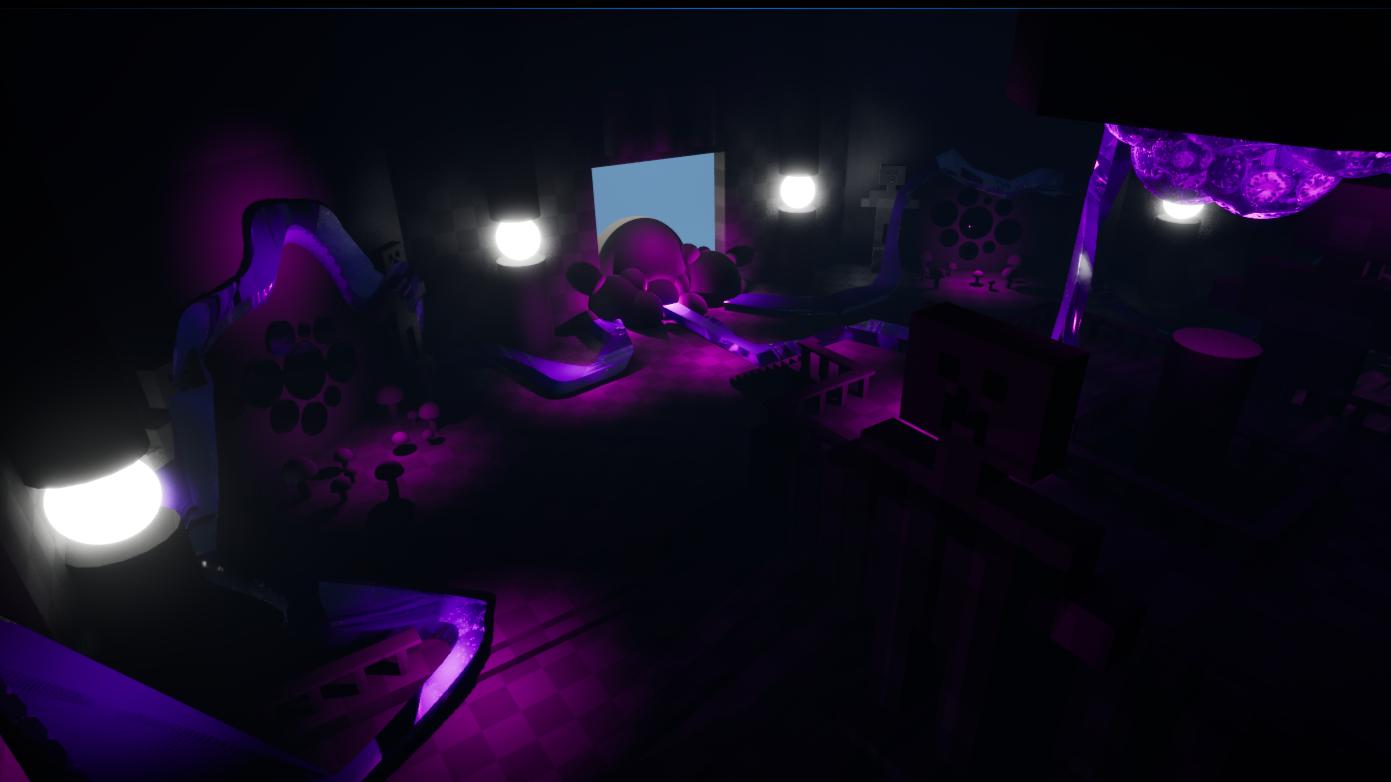
Our third level was our first "boss fight", where players had to defeat the infestation blocking the door to the next room. This level is also where enemies appear for the first time.
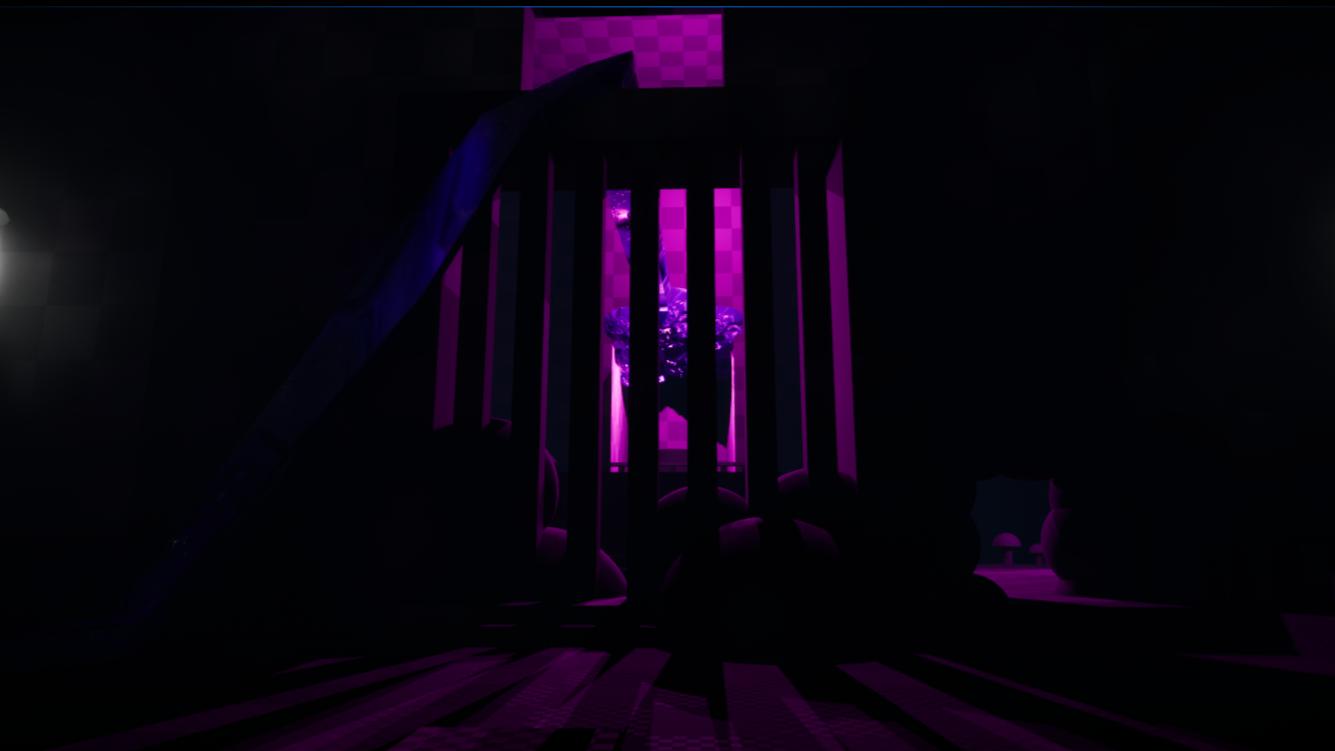
To defeat the infestation, you had to crush three "hearts" connected to the main organism blocking the door. You do this by standing on pressure plates, which gradually raise pillars that were originally part of the temple's door mechanism.
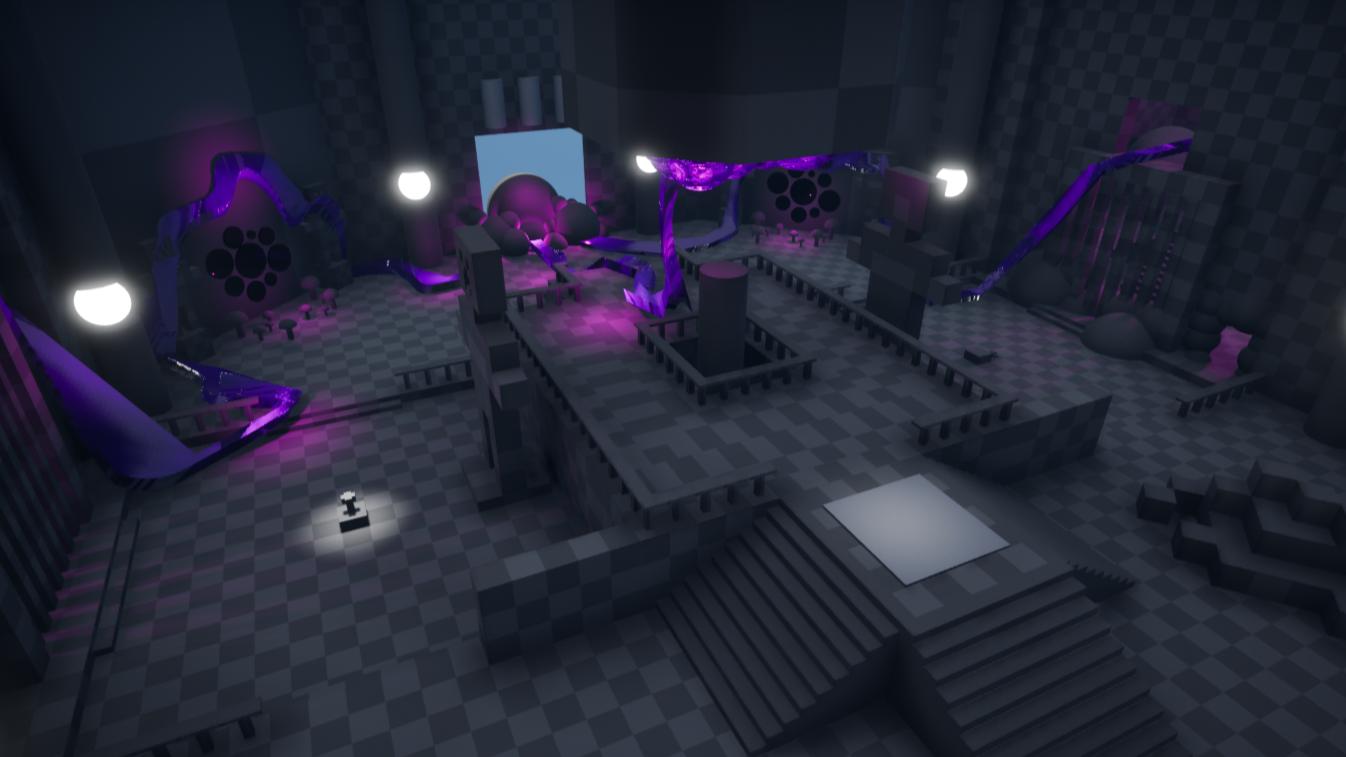
Two of the pressure plates are in small side rooms that can be accessed by pulling levers to open the gates. The right room, however, is so badly infested that the lever is destroyed, but a hole in the wall has opened up, allowing the player to crouch through.
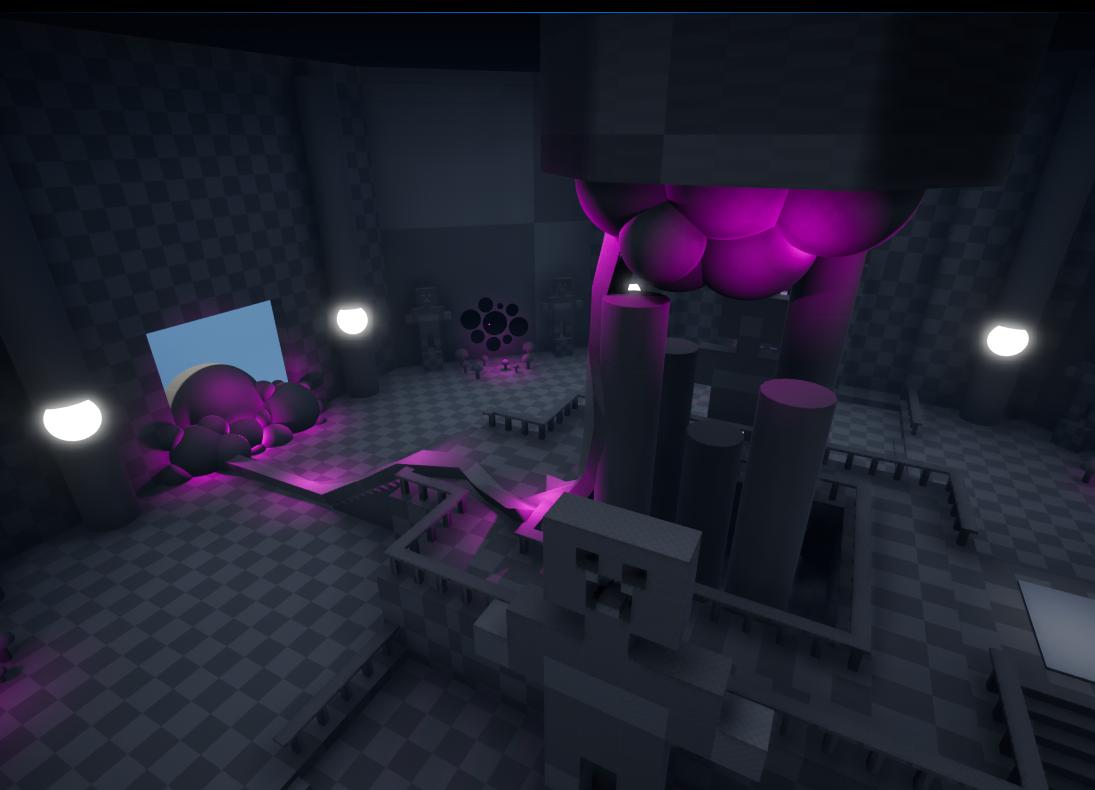
The hearts are positioned above the pillars, so raising them crushes the hearts. However, while you're on the pressure plates, enemies spawn continuously and try to push you off the platform.
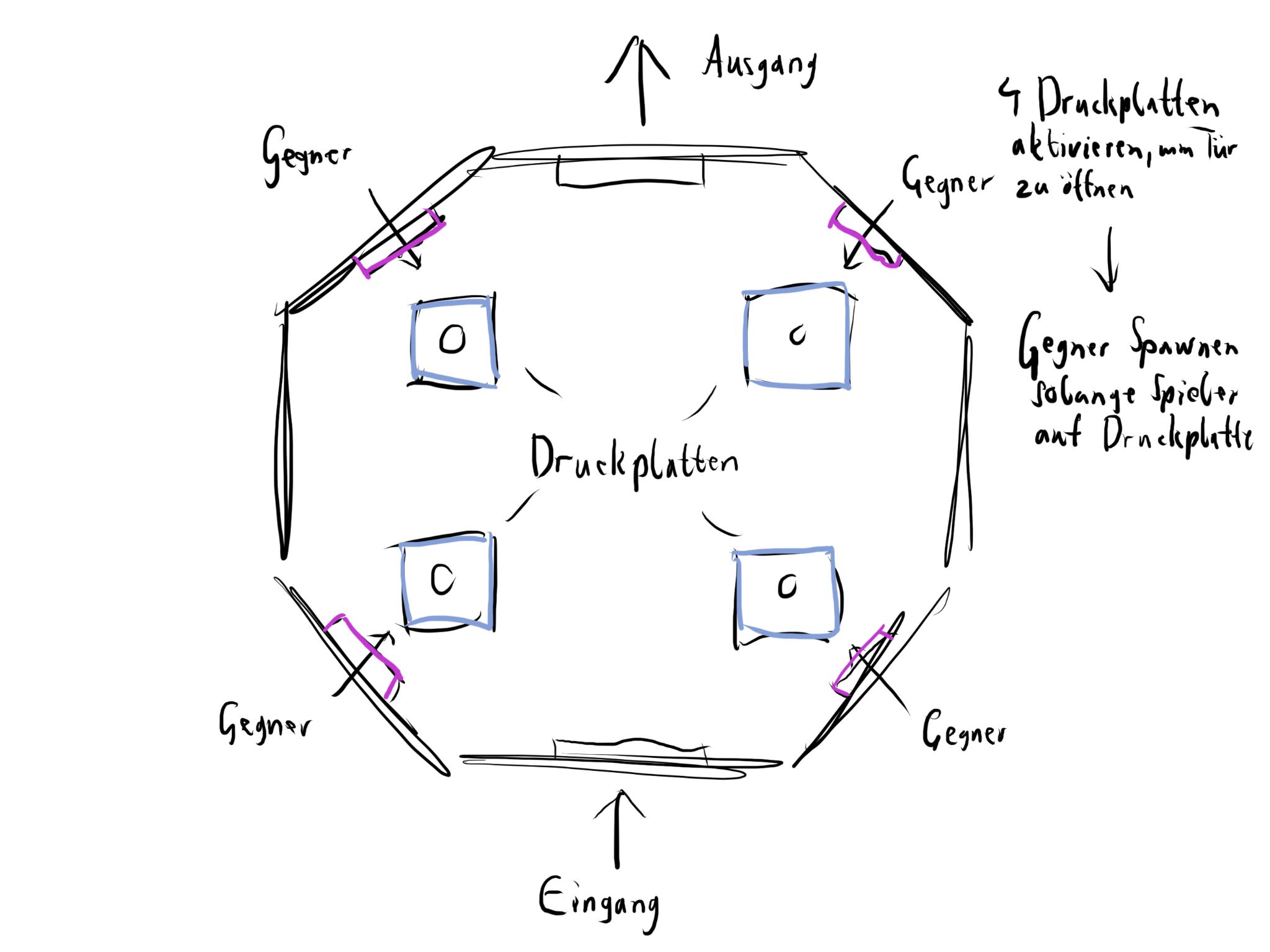
For comparison, here are two early sketches I made for the level. One featuring the pressure plates, and one the destructible hearts.
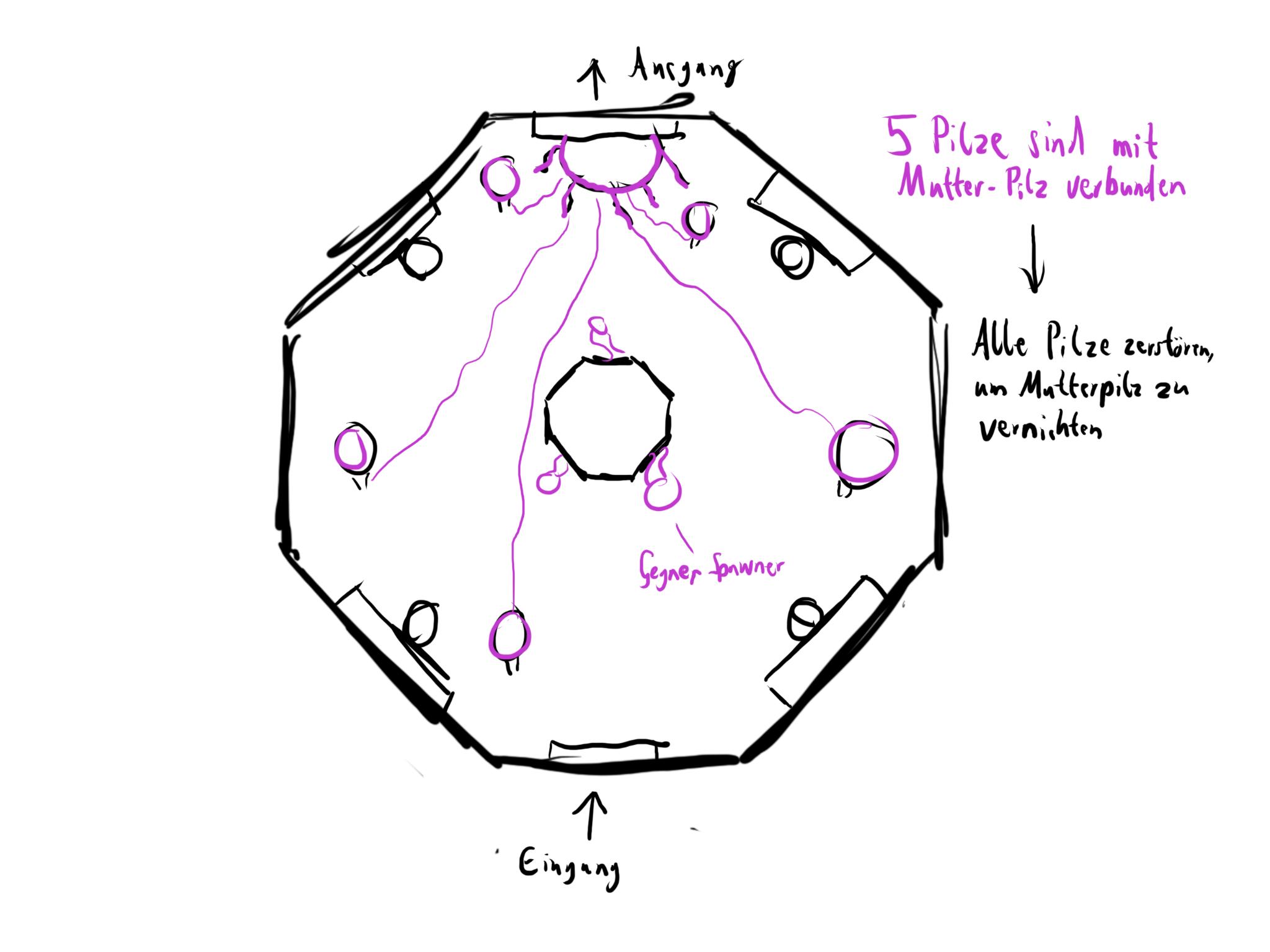
In the end, the level ended up being a mix of the two sketches, as it offered a more tense and exciting experience. You need to defend the plates you are standing on and are forced to be brave and hold your ground, which aligned with the vision we had for the level. That's why it's always a good idea to try out a few possible designs on paper before going into the engine.
Key Takeaways
Project Insights
As you might have noticed from the walkthrough, the game focuses on level design and art. Our team was mostly made up of artists, so we leaned more into visual fidelity rather than gameplay depth. The puzzle in the second room still turned out to be a good challenge, though, and I am proud of what we accomplished in such a short time.
Skills Developed:
-
Team Coordination
Managing a 10-person team with diverse skills and backgrounds -
UE5 Level Design
Creating blockouts and iterating based on user feedback -
Accessible Design
Designing for older demographics with limited gaming experience